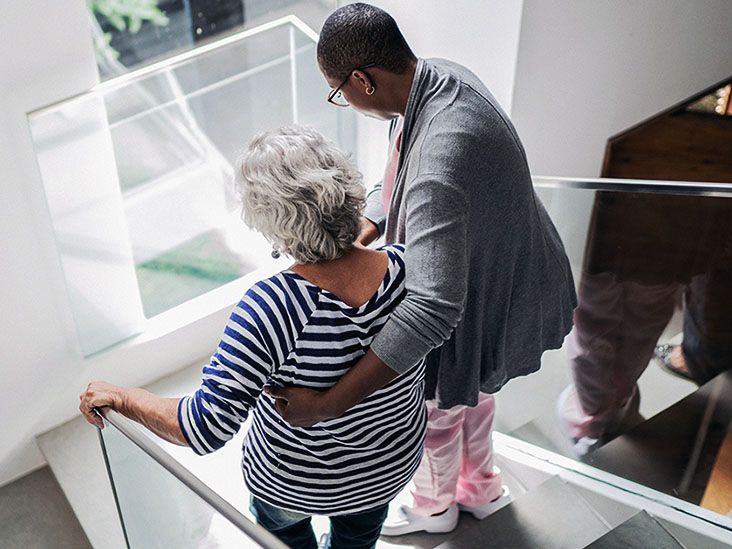Hey there! Let's talk about something that might be keeping you up at night - getting around when you're older. I know, it's not the most exciting topic, but stick with me here. Whether you've hung up your car keys or driving has become a bit of a challenge, finding reliable transportation can feel like solving a puzzle.
Here's the thing that really gets to me - I've seen too many seniors skip important doctor appointments, miss out on social activities, or feel isolated simply because getting from point A to point B has become overwhelming. It breaks my heart a little, honestly. But guess what? You're not alone in this struggle, and more importantly, there are actual solutions out there.
Today, we're diving deep into the world of transportation options for older adults, especially those on Medicare. We'll cover everything from what Medicare actually covers (spoiler alert: it's not as much as you might think) to the hidden gems in your community that could be game-changers for your independence.
Understanding Medicare's Limits
Let's start with the elephant in the room - Original Medicare's approach to transportation. And trust me, I've had this conversation with so many people who are just as surprised as you might be right now.
Here's the honest truth: Original Medicare is pretty strict about what transportation it covers. We're talking mostly emergency situations here. Think ambulance rides when you're in a genuine medical crisis - unconscious, bleeding heavily, or in shock. In those moments when every second counts, Medicare steps up and says, "We've got you."
But what about those routine trips that keep you healthy? Doctor appointments, getting prescriptions filled, or even making it to that physical therapy session that's helping you stay mobile? Unfortunately, Medicare typically draws a line there. Unless you're being transported in a medical emergency, those rides usually come out of your own pocket.
Now, I know what some of you are thinking - "But what about my dialysis appointments?" Here's where it gets a bit nuanced. If your doctor writes a note saying that regular transportation would endanger your health, you might be in luck. But honestly, getting that documentation in place can feel like navigating a maze.
When Emergencies Strike
Let's talk about the situations where Medicare really does come through. Emergency transport is where they shine. If you're experiencing a heart attack, severe injury, or any situation where moving you any other way could make things worse, Medicare Part B has your back.
I remember talking to John, a wonderful gentleman from Columbus, who fell at home and couldn't get up. His neighbor called 911, and while that ambulance ride set him back $1,200, Medicare covered $960 of it after his deductible. He still had to pay the remaining $240, but let's be honest - that's way better than the full whack.
The key here is that it has to be a true emergency, and the transport has to be to the nearest appropriate medical facility. It's not like you can call for an ambulance just to get to your favorite doctor across town. The system is designed for those moments when seconds really do matter.
The Medicare Advantage Advantage
This is where things get really interesting, and honestly, it's one of my favorite topics to discuss with people. Medicare Advantage plans - those are the alternative Medicare plans offered by private insurance companies - often come with transportation benefits that can make your life so much easier.
Some of these plans throw in rides to routine doctor appointments, trips to the gym (hello, fitness benefits!), or even Lyft and Uber credits. Maria from Phoenix was missing her dialysis appointments because she couldn't afford the rides until her granddaughter discovered that her Medicare Advantage plan offered $150 per month in ride credits. Talk about a game-changer!
But here's the thing - each plan is different, like comparing apples to oranges. One plan might offer $250 a year for transportation, while another might give you unlimited trips to fitness centers. The devil, as they say, is in the details. I always tell people to grab their plan's "Evidence of Coverage" document - it's like the instruction manual for what your plan actually offers.
Beyond Medicare: Hidden Treasures
Now let's venture beyond what Medicare covers into the community resources that many people don't even know exist. It's like finding money in an old jacket pocket - unexpectedly wonderful!
Most cities and counties have senior transportation programs that rely heavily on volunteers. These folks are angels, really. They're everyday people who've decided to spend part of their time helping seniors get where they need to go, whether that's to doctor appointments, grocery stores, or social activities.
Have you ever called 211? It's like having a community concierge service. Just that one number can connect you to local resources you never knew existed. I've seen people discover volunteer driver programs, senior van services, and even discounted taxi vouchers through this simple step.
Double Coverage, Double Benefits
If you're one of the lucky individuals who qualify for both Medicare and Medicaid - what we call "dual eligible" - you're sitting on a transportation goldmine, my friend. Medicaid steps in where Medicare leaves off, covering those non-emergency medical trips that are so crucial for staying healthy.
We're talking about rides to specialists, laboratory appointments, clinic visits, and sometimes even grocery runs if they're related to managing a health condition. Each state runs these programs a bit differently, so reaching out to your state Medicaid office is key.
| Type | Description |
|---|---|
| Non-Emergency Medical Transport (NEMT) | For doctor visits, therapy, prescriptions |
| Shared Ride Programs | Rides with other people going the same way |
| Taxi Vouchers | Paper or electronic vouchers for taxi use |
| Public Transit Passes | Free or discounted bus/light rail passes |
Some programs even offer shared ride options, which can be a great way to meet other people in your community while getting where you need to go. It's like carpooling, but for medical appointments!
The PACE Program Perks
Let me tell you about PACE - Programs of All-Inclusive Care for the Elderly. For those who qualify, it's like getting an all-you-can-eat buffet of healthcare and transportation services.
If you live in a PACE service area and meet certain care requirements, you get free transportation to your day health center and any medical appointments you need. No copays, no hidden fees, no worrying about how you're going to get there. It's beautiful, really.
The catch? You need to live in a service area and meet specific care needs, usually equivalent to nursing home level care. But for those who qualify, it can be life-changing.
Taking Action: Your Next Steps
I know it can feel overwhelming to figure all this out, but let's break it down into manageable steps. Think of it like assembling IKEA furniture - one piece at a time, and you'll get there.
First, give 211 a call or visit their website. 211.org is your gateway to local resources, and it's honestly one of the best-kept secrets out there. They can connect you with everything from volunteer transportation services to discount programs you might never have heard of.
Next, take a close look at your Medicare plan documents. I know, I know - insurance paperwork isn't exactly thrilling reading, but it's packed with information about what benefits you might be missing out on.
If you're dual eligible for Medicare and Medicaid, your state Medicaid office should be your next stop. The transportation help available through Medicaid can be incredibly generous, and each state has its own unique programs.
Don't Forget These Gems
There are also some wonderful private and nonprofit programs that deserve a mention. Services like GoGoGrandparent offer discounted rides for a small monthly fee, which can be worth every penny if it means you can get to your appointments reliably.
Uber Health is another interesting option, sometimes offered through healthcare providers themselves. And let's not forget about local churches and community organizations - they often run volunteer transportation programs that are completely free.
I've seen SilverRide programs in select cities that offer assisted transport specifically for seniors. These services understand that getting older sometimes means needing a bit more help, and they're designed with that in mind.
Common Pitfalls to Avoid
Let me share a few mistakes I've seen people make time and time again. Consider this your friendly heads-up, like a friend whispering advice across a crowded room.
First, don't assume Medicare covers routine rides. I can't tell you how many times someone has told me they thought Medicare would pay for their regular doctor visits. Unless you're in an ambulance for a medical emergency, you're usually on your own for those costs.
Second, if you're on a Medicare Advantage plan and you've never reviewed your benefits, you're potentially missing out on hundreds of dollars in transportation help. Some plans offer $500 or more per year for transportation - that's like getting a gift card to your independence!
And please, please don't wait until the last minute to arrange rides. Volunteer programs often need 24-48 hours' notice, and Medicaid transportation services need to be scheduled in advance. Plan ahead - your future self will thank you.
Building Your Transportation Network
What I really want you to take away from this conversation is that transportation doesn't have to be a source of stress or isolation. It can be a bridge to better health, social connection, and independence.
Think of it like building a toolbox - each transportation option is a different tool that can help you accomplish different tasks. Maybe your Medicare Advantage plan covers rides to doctor appointments, your local Area Agency on Aging connects you with volunteer drivers for grocery runs, and Medicaid helps with those specialist visits.
The key is knowing what's available and how to access it. It's like being a detective, but instead of solving crimes, you're solving the puzzle of how to get where you need to go.
Your Path Forward
Look, I know this might feel like a lot of information to process, but remember - you don't have to figure it all out at once. Start with one step, maybe calling 211 to see what's available in your area. Or check your Medicare plan documents to see what transportation benefits you might be missing.
I've seen people transform their lives simply by taking these small steps. Suddenly, they're not missing appointments, they're connecting with their community, and they're taking control of their health and independence.
Your health shouldn't depend on whether you can figure out transportation. With the right resources and a bit of persistence, you can find solutions that work for your unique situation. There are people and programs out there ready to help - sometimes you just need to know where to look.
So what's your first step going to be? Maybe it's making that call to 211, or checking your Medicare plan documents, or simply asking your doctor's office if they have any local transportation resources they can share. Whatever it is, take that first step today. Your future self will be grateful you did.
Remember, you're not just looking for a ride - you're investing in your health, your independence, and your quality of life. And that's worth every bit of effort it takes to find the right transportation solutions for you.
FAQs
Does Medicare cover transportation to doctor appointments?
Original Medicare generally does not cover routine transportation to doctor visits. However, Medicare Advantage plans may offer ride benefits, and Medicaid can cover non-emergency medical trips for eligible individuals.
What transportation does Medicare pay for?
Medicare covers emergency ambulance services when immediate medical care is needed. For non-emergency situations, coverage is limited unless specific health risks are documented by your doctor.
Are there free transportation services for seniors?
Yes, many communities offer free senior transportation through volunteer programs, Area Agencies on Aging, and local nonprofits. You can find options by calling 211 or checking with your local government.
Do Medicare Advantage plans include ride services?
Many Medicare Advantage plans offer transportation benefits such as ride credits, gym shuttles, or coverage for medical appointments. Check your plan’s Evidence of Coverage for specific details.
Can Medicaid help with medical transportation?
If you qualify for both Medicare and Medicaid, Medicaid often covers non-emergency medical transport like trips to doctors, labs, and clinics. Each state manages its own program with varying benefits.
Disclaimer: This article is for informational purposes only and does not constitute medical advice. Always consult with a healthcare professional before starting any new treatment regimen.
Related Coverage
Medicare convalescent care covers up to 100 days in a skilled nursing facility. Know the rules, costs, and how to maximize your benefits....
Medicare life insurance doesn't exist—learn the truth about Medicare and real life insurance options for seniors and their families....
Learn how to choose the best glycemic index (gi) brands of bread, cereal, pasta and more for managing blood sugar if you have diabetes or prediabetes....
Discover how anti-inflammatory essential oils like frankincense, chamomile, lavender and others can promote swelling and pain relief for conditions like arthritis, gut issues, sore throats....
Not all doctors who accept Medicare are the same. Learn how to find one that protects you from unexpected costs and surprise billing....
Blood pressure drawings use visuals to demonstrate physical concepts behind key measurements. Learn how these medical illustrations help diagnose issues and empower patient self-care....
Gentle exercises for over 50 help build strength, balance, and energy. Start moving today with safe, effective routines....
Beers Criteria 2023 helps older adults avoid risky medications and choose safer options for aging well with fewer side effects and better health outcomes....
Meeting senior nutrition needs helps maintain energy, muscle, and bone health. Learn how to eat right as you age....
See how Medicare Advantage plans handle the donut hole in 2025 and what the coverage gap closure means for your prescription costs....









